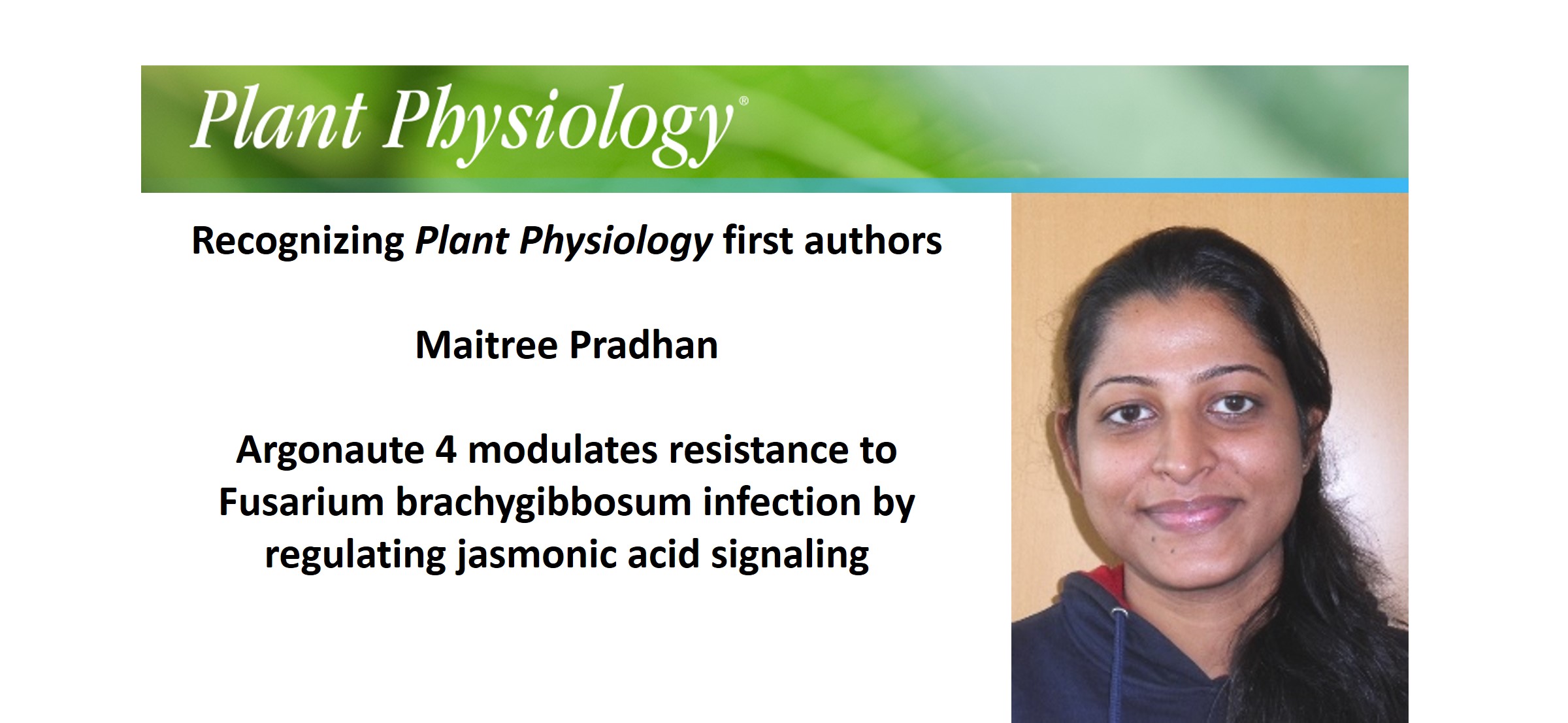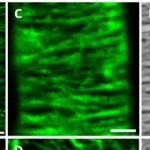Recognizing Plant Physiology authors: Maitree Pradhan
 Maitree Pradhan, first author of Argonaute 4 modulates resistance to Fusarium brachygibbosum infection by regulating jasmonic acid signaling
Maitree Pradhan, first author of Argonaute 4 modulates resistance to Fusarium brachygibbosum infection by regulating jasmonic acid signaling
Current Position: Post-doctoral fellow at Department of Molecular Ecology, Max Planck Institute for Chemical Ecology, Jena, Germany
Education: PhD (Natural Science) at Department of Molecular Ecology, Max Planck Institute for Chemical Ecology, and Friedrich-Schiller University Jena, Germany; Masters of Science (Industrial Biotechnology) at Siksha O’ Anusandhan University, Orissa, India; Bachelor of Science (Botany) at Utkal University, Orissa, India
Non-scientific Interests: hiking, travelling, cooking, watching thriller and suspense series
Brief Bio: I started my scientific career at Utkal University (India), where I got my Bachelor of Science in Botany. Then, I pursued a Master’s degree in Industrial Biotechnology at Siksha O’ Anusandhan University (India). In 2014, I had a great opportunity to start to work with Dr. Shree Prakash Pandey, where I was exposed to the field of regulatory basis of defense signaling in plants. Working with him, I got immense scientific knowledge and support to pursue my PhD, which I started at the Max Planck Institute for Chemical Ecology in Jena (Germany) under the supervision of Dr. Shree P. Pandey and Prof. Ian T. Baldwin. The focus of my PhD thesis was to understand the role of Argonaute family of genes in modulating host defense responses to insects and microbes in the ecological model species Nicotiana attenuata. We found that N. attenuata genome encodes for 11 AGOs corresponding to 8 unique conserved genes, which might entail functional specificity as we found that only one gene (NaAGO8) regulates host defenses against herbivory attack. This was published in Plant physiology in 2017. Next, we demonstrated that NaAGO4 is specifically involved in modulating N. attenuata’s resistance against Fusarium brachygibbosum. NaAGO4 acts along with Dicer-like protein 3 (DCL3), and RNA-directed RNA polymerases 1 and 2 (RdR1 and 2). Pathogen infection reprograms the miRNA landscape to target a network of genes of the jasmonic acid (JA) pathway and regulates its biosynthesis and signaling during Fusarium infection. We further demonstrated the importance of AGO4-mediated smRNA pathway in nature. This study has just got published in Plant Physiology. In future, I want to investigate the cross-kingdom regulatory roles of smRNAs.



